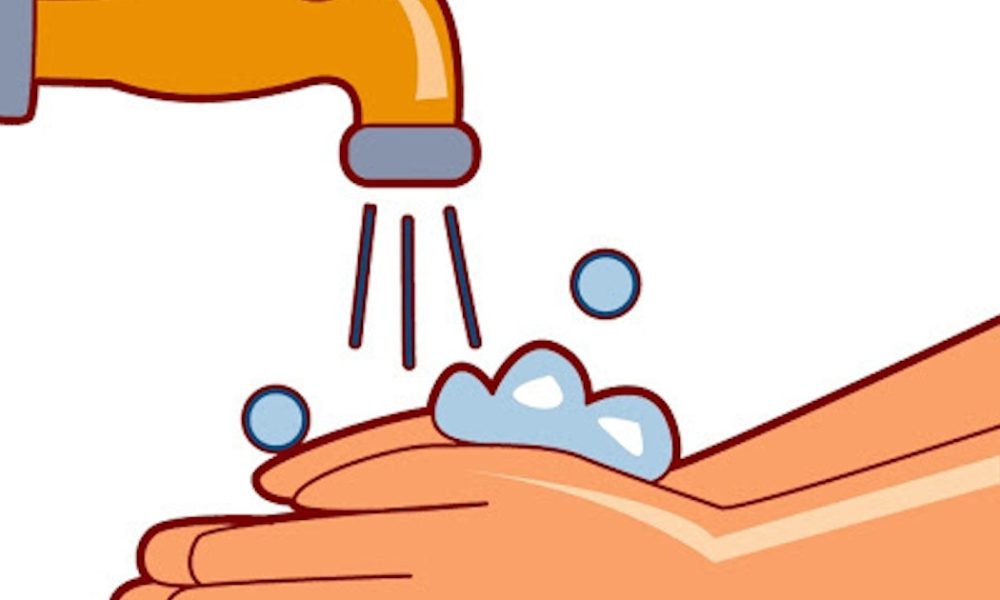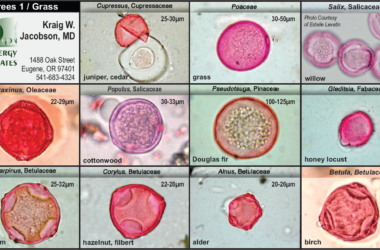
News of coronavirus is now getting closer to home. The first advice we typically hear is to wash our hands frequently. Use plenty of hot water and soap for at least 20 seconds, rinse and repeat. If you have any respiratory symptoms, please wear a face mask to reduce sharing this with others.
The CDC (Centers for Disease Control) does not recommend that people wear a face mask to protect themselves, unless you are caring for someone who is ill. Be polite, but don’t shake hands … try a fist or elbow bump.
So, what is COVID-19?
The new coronavirus, COVID-19, is a member of the coronavirus family. Its name, coronavirus, refers to the crown or halo around these viruses when seen under an electron microscope. We have all been exposed to other coronaviruses since childhood. Colds are caused by coronaviruses.
This virus affects the respiratory (breathing) system. We can picture our respiratory system as a series of air passages that become smaller and smaller as they go deeper into our lungs. At the very end of these passages are tiny, air-filled sacs called alveoli. This is where COVID-19 can cause damage, particularly to smokers and to people whose immune systems are weak.
Usually, our immune system cells will scavenge for viruses, engulf them and stop them from causing illness. Part of this normal immune response involves inflammatory substances, some fluid buildup in the cells, and dead cell/virus material that needs to be cleared out.
Because this is a new virus, some people’s immune systems may overreact, creating a strong inflammatory response. People who are smokers (whose alveolar sacs are already damaged) and those with hyperimmune reactivity may become quite ill. On the other hand, if the immune system is not robust, the virus may get the upper hand – again, causing severe illness in the lung passages.
What we choose to eat can impact our immune function. Sugar, in the form of glucose or fructose, will increase (cell damaging) free radical activity. When we eat sugary sweets we greatly reduce our leukocyte index, leukocytes are our bodies’ defenders against illness.
Sugar is a great virus food, feeding pathogens, giving them the energy they need to multiply. All of the carbohydrates in our diets will enter our bloodstreams as glucose including bread, potatoes, cereals, pasta, rice, low and non-fat milk, and even whole grains!
A great way to protect your body from the virus is to include plenty of healthy natural fats, such as butter, coconut oil, and other natural fat from pasture raised animals.
Suggested supplements for prevention from my colleagues at the Tahoma Clinic (they may all be taken with meals, and adult doses are listed):
• Vitamin C (any form) minimum 2000 mg daily in divided doses.
• Vitamin D 5000 IU daily unless you know that your vitamin D level (on lab testing) is above 60.
• Vitamin A 20,000 IU daily
• Zinc (any form; picolinate best for men) 15 mg daily. Zinc lozenges are a great choice as well!
Support if you become ill:
If you become mildly ill, use the above plus natural anti-inflammatories:
• Black Cumin Seed Oil 2-3 capsules daily
• Theracurmin (Turmeric) 2 capsules daily or more.
• (Or others recommended by your own doctor)
Please note that pregnant and nursing women should speak with their doctor before using any of the above suggestions. Specifically, high-dose vitamin A.
I’ve shared in past columns the benefits of Immune supporting properties of mushrooms. Turkey Tail is rich in an immune-supporting compound called Beta Glucans. Agarikon mushroom is a cough, sneeze and sniffle fighter.
Anywhere from 70-80% of our immune function originates in our gut, so supporting our gut health with unsweetened probiotic foods like kefir, yogurt, kraut and kimchi can be helpful.
Drink plenty of clean, filtered water. One of the leading reasons for succumbing to illness is chronic dehydration.
Exercise is great for our bodies’ defense against illness. Even a casual 20-minute walk will stimulate the immune system, and the lymph system, helping us detox and remove the damaging free radicals and other pathogens that weaken us and stress our system.
A good sweat will greatly increase the effects of the exercise. No need to over do it though, again we want to save energy to fight those bugs!
Of course none of our bodily function work well without sufficient sleep. Get a good 7-8 hours of uninterrupted sleep a night.
These are all basic ways to support your immune system function and can support our goal to not be impacted by viruses and other illnesses. For additional information stop in to Evergreen Nutrition to see me on Fridays and Saturdays. Salud!
Contact Yaakov at [email protected].







